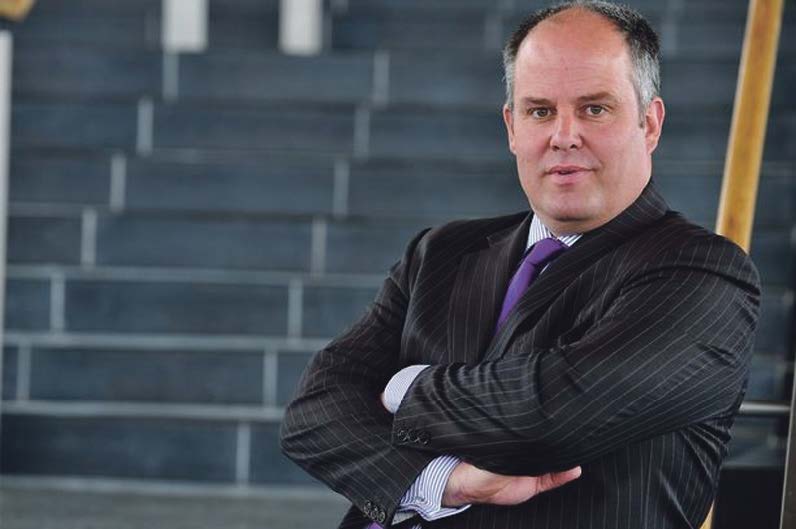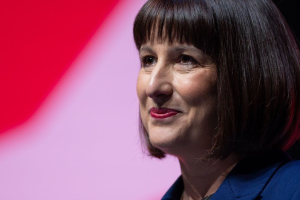by Jon Coles
ANDREW RT DAVIES, the new and combative Conservative Shadow Health Minister, stepped into new territory for him and the Conservatives in Wales this week.
In recent weeks, the Conservative group in the Senedd has stepped up its attacks on the Welsh Government’s handling of the COVID-19 crisis, highlighting instances where Wales has failed to follow the Westminster Government’s lead on policy decisions.
TURNING A BLIND EYE
With Westminster’s current response to the COVID crisis at sixes-and-sevens, the Shadow Health Minister put in his boot to criticise the Welsh Government for following Westminster’s lead on a contentious policy decision.
In March, the Westminster Government – followed by the UK’s devolved administrations – began discharging hospital patients into care homes. Discharged patients were not tested for coronavirus.
The Herald reported on the scandal at the time. We highlighted instances where care providers, in both Wales and England, were pressurised by health boards and trusts to take untested patients into closed residential settings.
The outcome of that disastrous policy decision was easily predictable. Its likely consequences were well-known – at least by the Westminster Government – at the time it made that decision.
Introducing a virus known to be lethal to vulnerable and elderly patients caused a wave of deaths in care homes across the UK. The virus spread among an isolated and largely defenceless population.
The foreseeable result was a calamity.
Deaths in social care settings spiralled. They remain high even after the first spike of the virus in the general population and its decreasing incidence across the UK.
Wading into the scandal this week, Andrew RT Davies criticised Welsh Government without a moment’s apparent reflection on the wider context of his words.
In a press release, Mr Davies commented: “There can be no excuse for such an ill-thought decision which, of course, will have had a profound impact on some of our most vulnerable in care homes. I cannot comprehend where the government’s thought process was in pushing care homes to accept hospital patients who had not received a COVID-19 test.
“The bullish act by the Welsh Labour-led Government in applying pressure is truly scandalous and as a result, the people of Wales deserve an apology.
“The most pressing question now is to address how many patients were infected after being admitted and then discharged from the hospital. To address people’s serious concerns, this must be a priority for the Welsh Labour-led Government.”
On receipt of the press release, we replied and asked whether Mr Davies wished to extend his tart observations about the discharge of untested hospital patients to include the Westminster Government.
After recent press releases in which the Conservatives have not hesitated to compare Wales unfavourably with England, we believed Mr Davies might reflect and provide a balanced response: possibly to praise the Welsh Government for following Westminster’s lead; possibly to take the chance to even-handedly criticise the Westminster Government’s policy which the Welsh Government followed.
We did not receive a reply.
POLITICISING A PANDEMIC
Over recent weeks, the Conservatives have ramped up partisan rhetoric over the Welsh Government’s handling of the COVID-19 pandemic.
Former Shadow Health Minister, Angela Burns, managed to navigate a path between scoring political points and attacking the Welsh Government for its multiple early failings in Wales’ response to the virus.
Those failings include setting a testing target, failing to secure the testing kits necessary to meet the target, saying a testing target didn’t exist, announcing a revised testing target, and then abandoning testing targets altogether.
On each of those, Mrs Burns made telling points and held Wales’ Health Minister, Vaughan Gething, to account – often leaving him wriggling on a hook made of his own contradictions and evasions.
Similarly, when Wales entered the strictest phases of lockdown, Paul Davies was able to highlight the enormously disproportionate impact of them on Wales’ rural economy without indulging the fantasy that somehow things were any rosier over the border.
As the Westminster Government began to ease lockdown restrictions in England, and under pressure from both the Westminster Government and Conservatives on either side of Wales’ border with England, the tone of Conservative briefings changed sharply.
Repeated releases from the Conservatives demanded that the Welsh Government lift the lockdown in Wales in step with England. The Welsh Government was accused of ‘dither and delay’, the phrase ‘catch-up Cymru’ began to appear. Fighting talk appeared in the names of shadow ministers who previously expressed themselves cautiously, occasionally critically, and usually constructively.
With one eye on the next round of elections to the Senedd, the Conservatives moved away from consensus and criticism to outright attack.
Having watched the reopening of schools in England unravel into chaos, Conservative attacks on the reopening of Wales’ schools lost step with reality. Now, the Welsh Government was criticised for taking steps that England failed to take to keep schools open there. The desperate floundering of Westminster’s Conservative Education Minister, Gavin Williamson, stood in stark contrast to the determined and unflustered approach of his Welsh counterpart, Kirsty Williams.
Darren Millar, the Senedd Member charged with speaking for the Conservatives on COVID in Wales, began to speak of Wales’ failings – and particularly those of the Welsh Government – for not reopening pubs, restaurants and holiday accommodation. With Wales’ hospitality and tourism industries on their knees, it appeared that approach would serve the Conservatives well.
As the easing of lockdown in parts of England has unravelled, however, Mr Millar has gone noticeably quiet as Wales continues to lift restrictions now re-imposed in significant areas of England’s north-west.
The Prime Minister’s warnings of the risks of a second wave of the virus should focus Conservatives in Wales’ attention on what preparations the Welsh Government is making to head-off that eventuality or at least ease its impact if or when it arrives. Instead, Andrew RT Davies is fighting four-month-old battles seeking headlines.
CONSERVATIVES NOT ALONE
One of the features of the crisis has been how Plaid Cymru has used it to propel its own message for an independent Wales – or at least a Welsh legislature with far stronger powers than the current arrangements.
‘Westminster doesn’t work for Wales’ is how Plaid has pitched its message. Its fire is concentrated on the shambolic approach of the Westminster Government’s response to the crisis. The Prime Minister’s endless capacity to make up policy on the hoof when caught out or tell outright lies when questioned about details has given Plaid Cymru ample opportunity to illuminate the gap between Westminster’s rhetoric and reality.
The Westminster Government’s hectoring approach to the UK’s devolved administrations, which includes gazumping the Welsh Government on a deal for testing kits with pharmaceutical giant Roche, and its constant inconstancy and inconsistency has also allowed Plaid to deploy
its choir of voices demanding more autonomy – preferably independence – for Wales.
When attacking the Welsh Government, however, Plaid has taken a different approach to the Welsh Conservatives. It has clamoured to keep restrictions in place – for example on schools – and for existing restrictions to be strengthened and reinforced – for example on face coverings, a policy on which it is eerily close to the Conservatives’.
However, Plaid – and the Conservatives – have fallen well short of saying what they would have done differently in the same situation and what they would do now to improve things during the continuing COVID age.
ONE EYE ON THE ELECTION
By the time next May comes around, both of Wales’ principal opposition parties need to set out defined messages that are both less negative and more grounded in current reality if either is to shift Labour from power in Cardiff Bay.
For the Conservatives, the challenge is finding a voice for Wales which is not an echo of Westminster. The events of recent weeks demonstrate that efforts to reform the Conservatives in Wales to forge a distinct identity from the UK party are likely to be seed falling on stony ground. Darren Millar is Boris Johnson’s representative on Earth and Simon Hart his rock. A more constructive approach from the Conservatives is, therefore, highly unlikely.
For Plaid Cymru, the challenge is moving beyond dreams of jam tomorrow in favour of policies for today. Plaid need to focus less on what Westminster isn’t doing for Wales but what Plaid CAN deliver for the whole of Wales and not just its existing voters. Plaid’s problem is systemic. It lacks resources and, while it well-organised in pockets of Wales outside ‘Y Fro’, it has not found the key to unlock monoglot Anglophone voters in sufficient numbers across Wales.
As for Labour in Wales, all it can promise is more of the same. It’s been in power for over twenty years and it isn’t likely to change a formula that’s kept it in power for so long. And, when it comes to the economy, Labour can point out that the big levers are held by the Exchequer in London.
The Conservatives and Labour have the advantage of a large electoral base across most of Wales. If they can energise those voters to turn up and vote next May in anything like the numbers they did in the General Election, Plaid will have to watch out for a massive squeeze on their far smaller electoral base
















